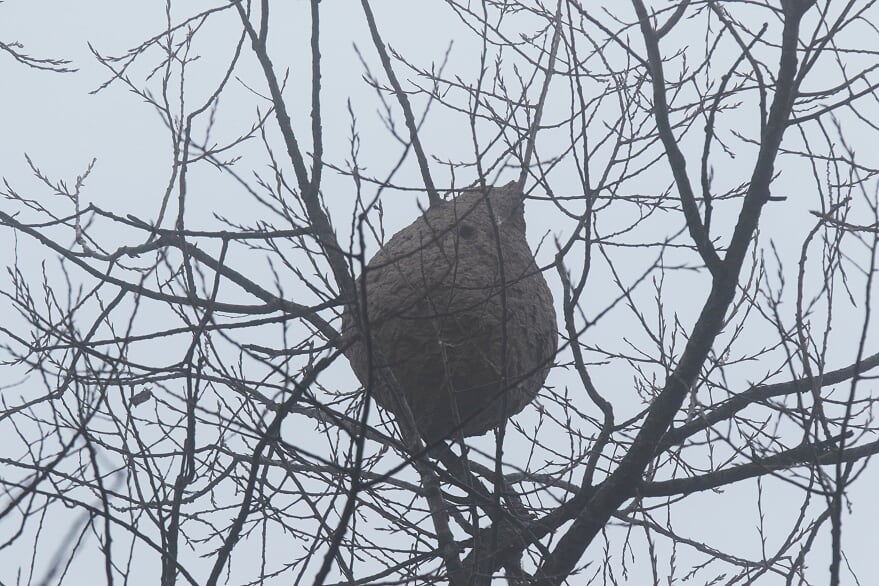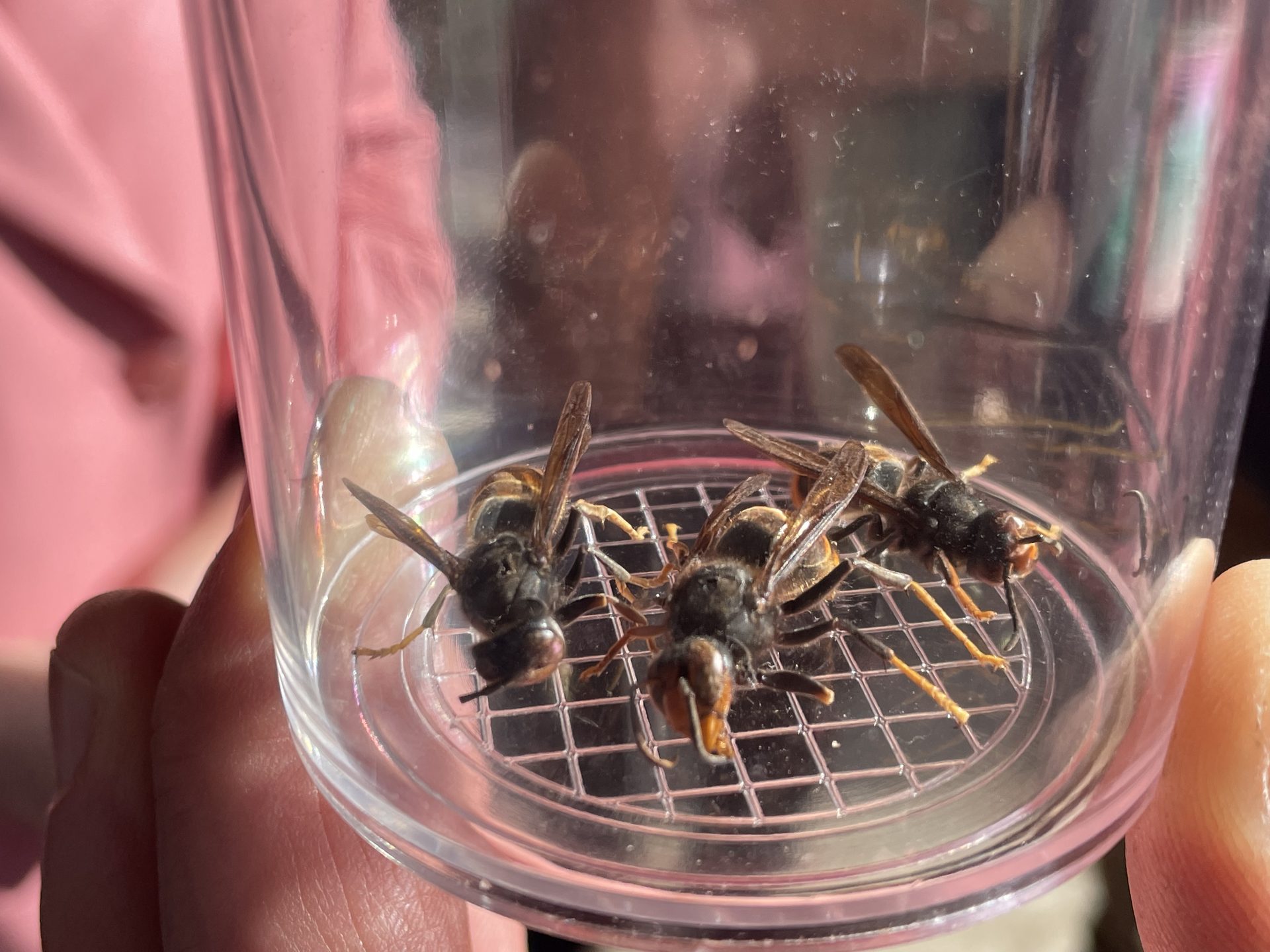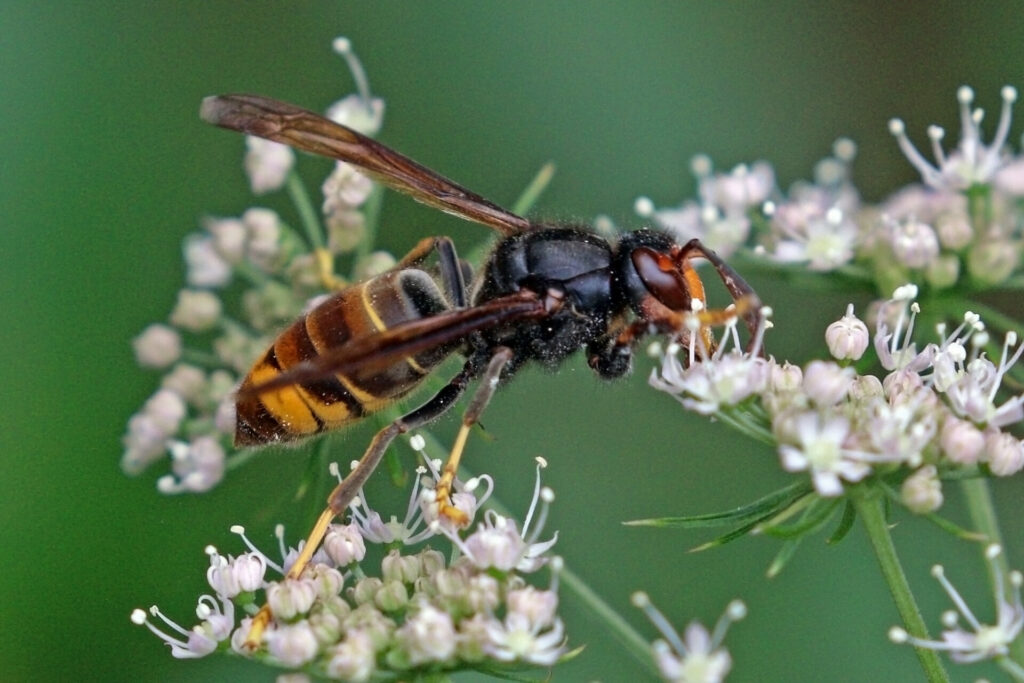The Asian hornet invasion in Belgium has reached alarming levels. However, experts warn that these numbers may be a significant underestimate due to the lack of a central platform for reporting Asian hornets.
There has been a staggering increase in reported sightings and nests this year, with more than 2,800 queens and nests reported, compared to 1,400 last year, according to the Flemish Bee Institute.
The situation is particularly concerning for native honeybees, as the Asian hornets pose a severe threat to their populations. The hornets' impact on biodiversity and ecosystems in Flanders is immense, as they devour over 11 kg of insects in a single season. Unfortunately, the worst is yet to come, as many nests are typically only discovered in autumn, when the hornets create large, nests high up in trees.

An Asian hornet nest. Credit: Belga
Coordinated effort urgently needed
The lack of a centralised approach to tackle the Asian hornet problem is exacerbating the issue. While some initiatives have been taken, such as a pilot project to attract and catch queens, and the allocation of extra funding (approximately €750,000) by the Flemish government, the fragmented approach is proving insufficient in terms of addressing the rising menace effectively.
Various stakeholders, including exterminators, beekeepers, firefighters and local authorities agree that a coordinated and centralised effort is urgently needed. The absence of a unified strategy hampers effective extermination and containment measures, allowing the Asian hornet population to continue to grow unchecked. Moreover, the lack of a comprehensive plan leads to confusion among citizens about where to report sightings or nests.
The responsibility for combating the Asian hornet invasion in Flanders is currently divided between different departments: Minister Zuhal Demir for Nature and Forest Agency's nature reserves is responsible for extermination efforts, and Minister for Agriculture Jo Brouns is responsible for protecting threatened honeybees. While both ministers have taken action, the lack of a cohesive plan makes it challenging to combat the issue comprehensively.

Asian Hornets. Credit: Belga / Marc Dirix
Related News
- Fewer gardens take part in this year's butterfly count
- Nature conservation organisation sues Flemish Government to protect wild hamsters
Experts and local authorities are advocating a unified, area-wide approach that involves all relevant agencies and stakeholders. Such an approach would clarify responsibilities, provide consistent support for the Flemish Bee Institute and ensure that the fire brigade, while having a role in safety concerns, does not shoulder the entire burden of extermination.
Beekeeper Jef Torfs warned in a recent VRT interview that it may be too late to eradicate the Asian hornets entirely, given their rapid multiplication over the years. However, concerted efforts can still help mitigate their impact on the environment and honeybee populations.
"The Flemish government urgently needs to take collective responsibility, listen to expert recommendations and develop a comprehensive plan for Flanders," he said. "Only by acting together can the menace of Asian hornets be contained and managed for the benefit of both humans and nature."

